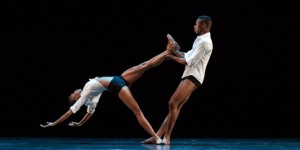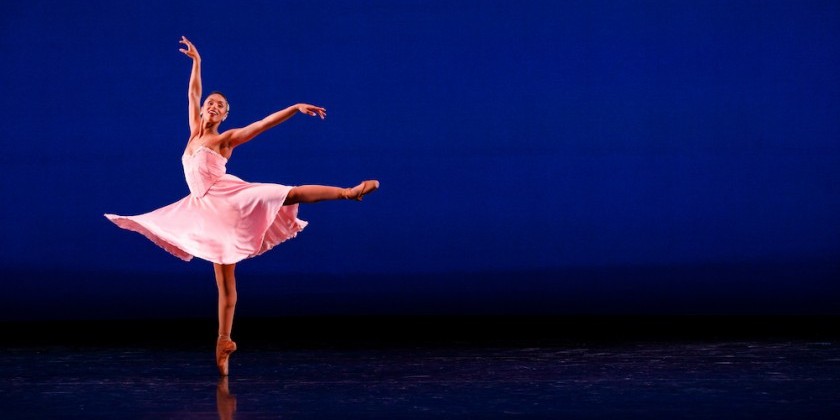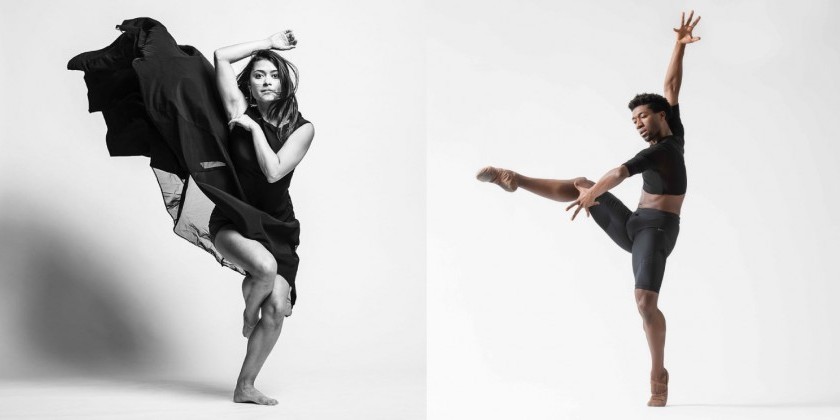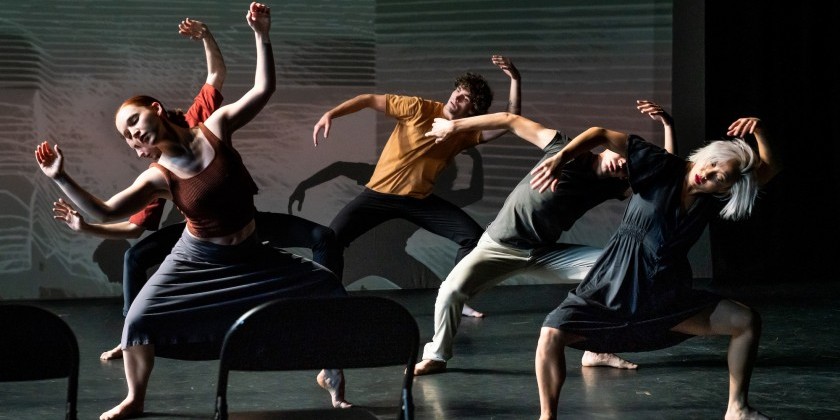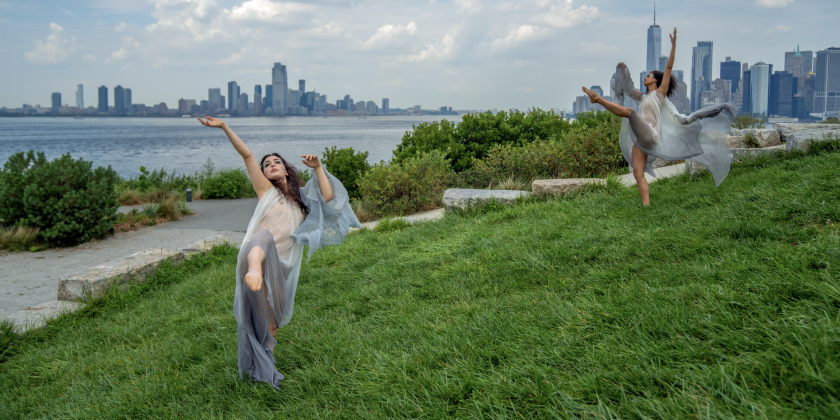EMBODIED LIFE: Willow Sanchez on Transitioning from Ballet Dancer to Municipal Lawyer and How Negotiation Is Needed in Both
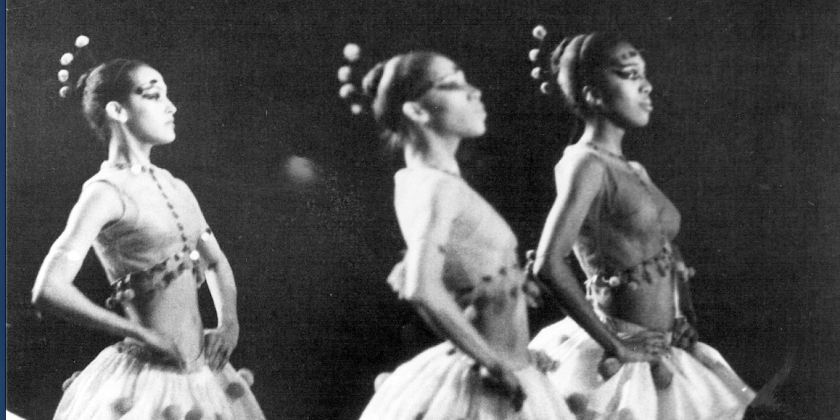
Martha Graham once opined, “A dancer, more than any other human being, dies two deaths: the first, the physical when the powerfully trained body will no longer respond as you would wish.” Yet a vast expanse lies between those two deaths. While some may never leave dance’s thrall, going on to careers in education, administration, academia, or directorship, others chart an entirely new path that, at first glance, may seem far from the studio and stage.
But can one ever stop dancing? Not really. The Dance Enthusiast's EMBODIED LIFE tells the stories of those who've segued to new ventures and how dance continues to inform their lives.
Willow Sanchez knows how to negotiate. She has negotiated her way from a dance student in the Virgin Islands to an undergraduate at Barnard College, from a member of Dance Theatre of Harlem to a practicing attorney in Dallas, Texas. Along the way, she has negotiated a geographical sweep that has included an early childhood in New York and law school at Stanford University. Currently, she is negotiating a successful career and home renovation while overseeing the education of her daughter, a sophomore at an esteemed art school.
Sanchez credits her excellent negotiation skills to the awareness she developed as a dancer. "Your mind has to be so open when you dance," she says. "Your peripheral vision goes almost all the way behind because you have to be that aware. It's that theme of awareness you need to be a good lawyer because you can't just get stuck on one point of view and feel that it's the winning point."

One of the significant life negotiations she made was figuring out how to balance her desire to dance with her academic goals, the latter of which was spurred by her mother. "My mother had always drilled it into my head that I was going to go to college," she says. Although she received offers from Yale and Brown, among others, she opted for Barnard College. "I chose Barnard in the city because I figured I could have the best of both worlds." Majoring in architecture turned out to be all-consuming, and she found herself pulling all-nighters to complete the rigorous work. This ultimately prompted a reckoning with herself. Sanchez says, "There were other things I still had inside me."
So she enrolled in Dance Theatre of Harlem's summer program even though it'd been several years since she'd danced up to caliber. "I got yelled at day in, day out by Mr. Mitchell, so much so that I thought I was going to quit." But she didn't, and at the end of the summer, he offered her an apprenticeship. She spent her junior year dancing full-time and going to school full-time before it became unsustainable due to touring and other company obligations.

She applied for a leave of absence, and the dean, who'd seen Dance Theatre of Harlem on television, said her grades were good for ten years. Ironically, her mother was supportive of her decision to pursue dance while her friends urged her not to drop out of school. "They said, 'You'll never return to college, and you can never have a life where you can support yourself as a professional dancer."
Sanchez proved them wrong, performing with Dance Theatre of Harlem for seven years. She'd risen to the rank of soloist when the pull to return to school manifested. It was the late '80s, and New York City was in the throes of a dark time. She explains, "The AIDS crisis was everywhere; homelessness was exploding. The crack epidemic was happening. I was a big news junkie, and I was also a full-time dancer, which was all-consuming. I couldn't do anything to help my city."

But Sanchez was determined to help. Her objective was to work in public policy, so she opted to become a lawyer. "I felt that being a black woman with a Spanish surname meant I needed to have the degree that the folks who made public policies would respect," she says. First, though, she had to finish her bachelor's degree, which proved to be more daunting than she expected.
Initially, the change from moving to sitting was challenging. "I could feel that the muscles in my tush were breaking down," she jokes. Now, she gets up to stretch, and when the urge strikes her, she chassés down the hallway. "Most people know I'm a former dancer," she explains.
More onerous was getting her brain to function analytically rather than concretely. On one particularly discouraging day, she bumped into a former dancer, now a lawyer. "My brain just won't think," Sanchez confessed to her. The woman told her to persevere. "'You've been using different muscles. Just be patient. It's in there," she recollects of the woman's advice. It was exactly what she needed to hear.

After graduating and doing a nine-month fellowship in public policy, Sanchez became a practicing attorney because the law can change societies. "When I was in law school, I got exposed to how the law really undergirds our whole world," she says. So she became what she never thought she would be — a practicing attorney.
The kind of law she practices is different from what popular media depicts. She is a municipal lawyer or, in her words, "a transactional attorney," working for the good of Dallas by structuring deals or making public policy with organizations that range from non-profits to the government. Her work often unfolds as a solitary pursuit. "You're very much in your head, thinking through concepts or approaches. You're reading cases, or you're reading articles, or you're writing."
Sanchez has important, necessary advice for career-changing dancers who are used to feeling inspiration and motivation at a gut level: "I had to learn that I can still be successful even if I don't feel it in my soul on this particular issue or this particular negotiation." She also believes that dancers' devoted work ethic will come in handy when they change careers. "A level of commitment will get them over whatever hurdle they see," she advises.

She has many fond memories of her past that include a "magical" performance where everything "flowed" and a cross-examination of a senior partner of the law firm she'd recently joined. Yet she saves her most joyous words for her mother and the community of the Virgin Islands where she was friends and fellow dance students with The Dance Enthusiast's editor in chief, Christine Jowers. The St. Thomas School of Dance she attended was exceptional, bringing in master teachers and arranging for students to attend summer programs at places like North Carolina School of the Arts. Even more critical was the island itself, which supported the arts. "It was a very, very rich arts community," she says. "There were a lot of dance lovers on the island." From these fertile roots, Sanchez has been able to soar.




